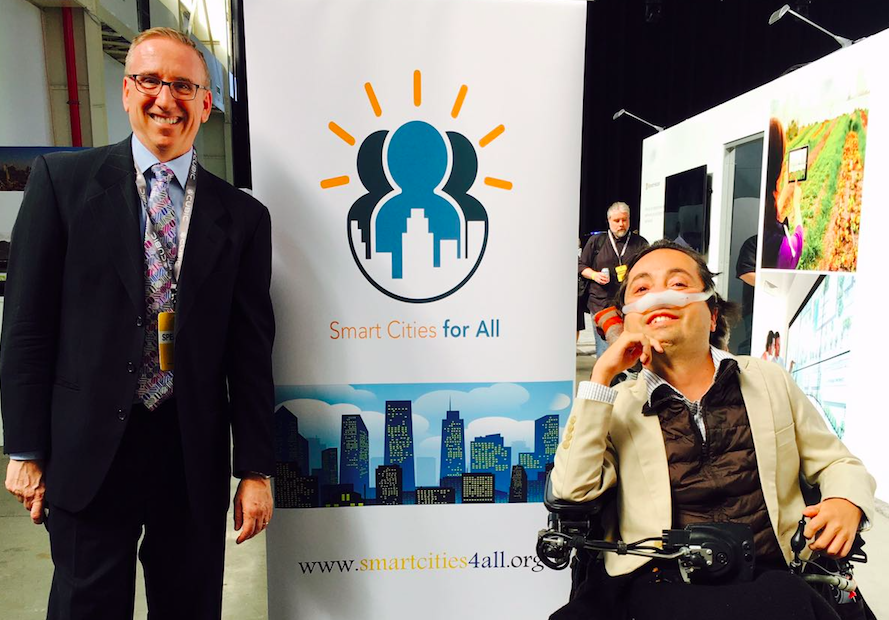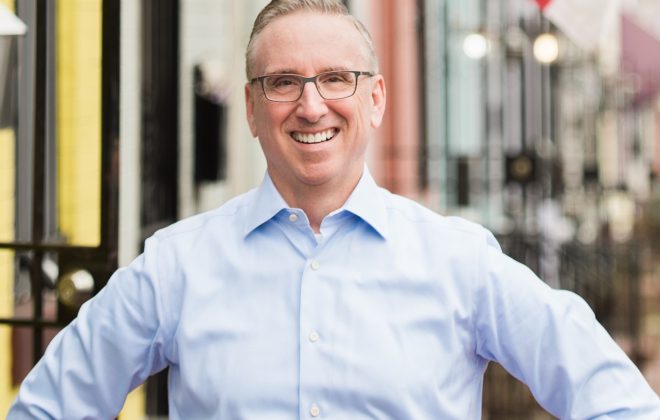Building a global movement for Inclusive Smart Cities…
The theme of today’s United Nations International Day of Disability is “Transformation towards sustainable and resilient society for all”. At the Smart Cities for All global initiative, we see “Transformation” and “For All” as critically important.
In June of 2016, Dr. Victor Pineda and I brought together our two organizations, G3ict and World Enabled, to launch a joint effort to ensure that increasing global urbanization and use of technology creates opportunities not barriers for persons with disabilities. Unfortunately, our research shows that today Smart Cities worldwide, in both the global north and the global south, are making the existing digital divide larger not smaller.
We are working to fix that.
We have released a Digital Inclusion Toolkit to help cities strengthen their commitment to accessibility. The tools are available today in 8 languages with more to come.
Community is key to progress. It is necessary to build the ICT accessibility and disability knowledge of important Smart City communities, including government leaders and managers, IT professionals, technology companies, and disability organizations. We must also build linkages among these communities. The silos that separate them prevent progress.
During this past month, Victor and I focused our Smart Cities for All team on growing and working with a global community of leaders. Some highlights:
Future Cities Catapult, this UK government supported center to advance Smart Cities, convened leaders from industry and civil society to strategize with us about smart cities standards. We must ensure that technical standards to define Smart Cities also result in more accessibility.
Microsoft’s UK subsidiary hosted for us an expert roundtable discussion about the new Digital Inclusion Maturity Model that we have begun to develop. Leaders from several London organizations shared valuable insight on exactly what accessibility and inclusion indicators Smart Cities should be tracking and benchmarking.
While in London, we were able to discuss our Smart Cities for All tools withTransport for London and the Mayor’s offices for disabilities and smart cities. We explored strategies for making more progress in cities in the global south with the Leonard Cheshire Disability charity and the Royal National Institute for the Blind shared with us their exciting innovations for mobility in cities.
In Barcelona, at the largest annual gathering of Smart Cities and technology companies, the Smart City Expo and World Congress, we saw that too many Smart City solutions today are not accessible to persons with disabilities. However, we were able to meet with some companies, like Mastercard,Avepoint, IDC, Accenture, and Microsoft, that are working on how their Smart City leadership also can promote greater inclusion.
Every November, the International Telecommunications Union (ITU)convenes telcom regulators and others from across the Americas to discuss how to promote accessibility and inclusion. This year, the 200 leaders assembled at the Accessible Americas IV event included Smart Cities for All in their deliberations.
We will continue to build a global community with leaders like these as we all work toward more inclusive Smart Cities. If you would like to join this global community or just know more about our work, please contact us at [email protected]
Vice President for Global Strategy & Development at G3ict — The Global Initiative for Inclusive ICTs
Content retrieved from: https://medium.com/smart-cities-for-all/building-a-global-movement-for-inclusive-smart-cities-8b2793235e25.
Upcoming Events
There are no upcoming events.





